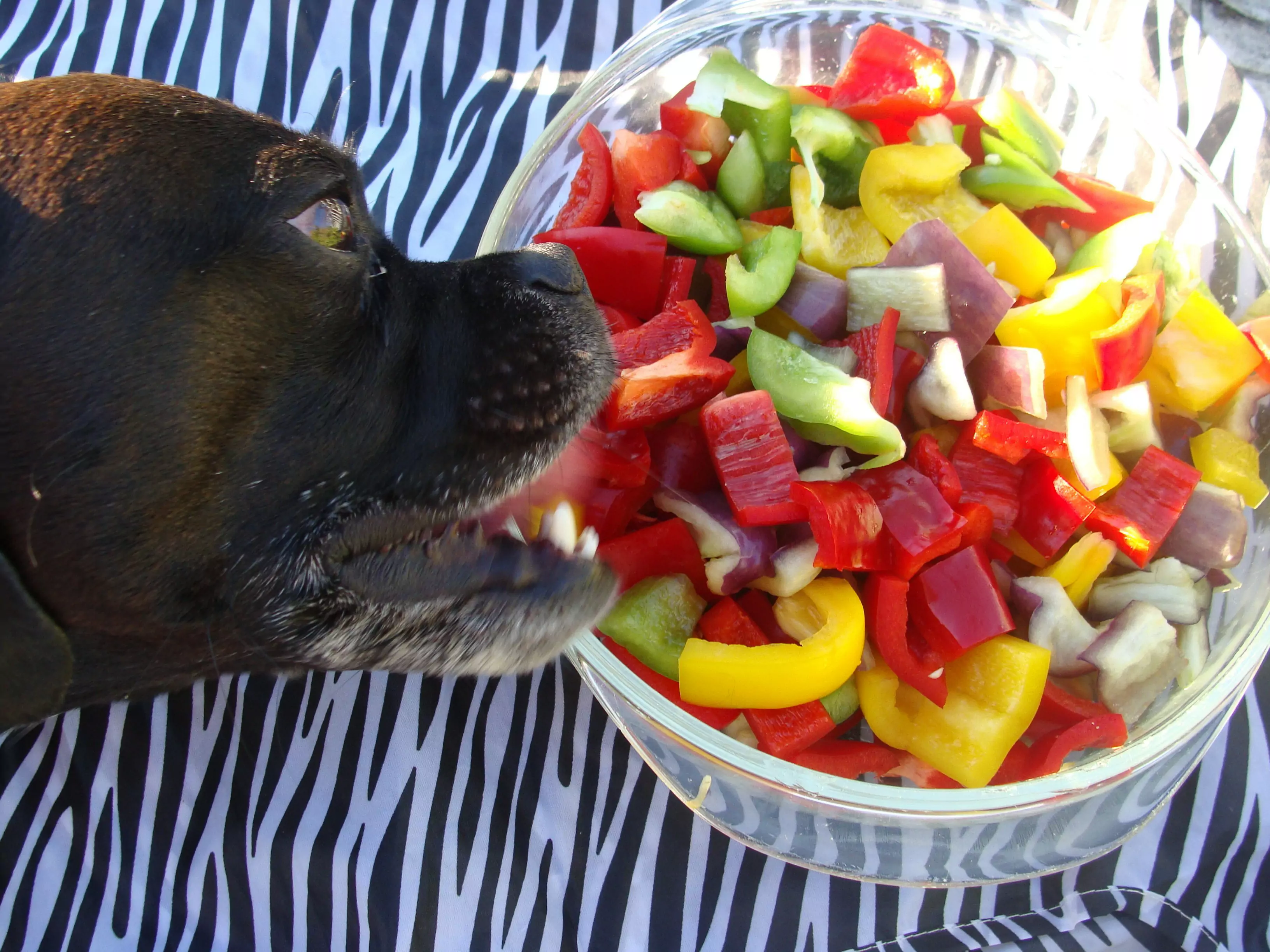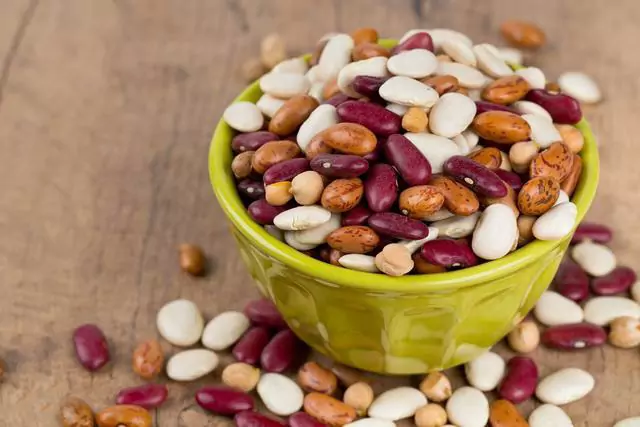Can dogs eat chili peppers?
2022-07-08
I. Things to know about dogs and peppers
Green peppers, also known to some as bell peppers and sweet peppers, are a healthy, nutrient-dense food when it comes to peppers. It is very low in calories and rich in vitamins and minerals, making it one of the top choices for a portion of healthy food. So, can dogs eat bell peppers/do the benefits that bell peppers bring to humans also bring to dogs? Can other kinds of peppers be eaten by dogs as well?
Is it safe to feed dogs green peppers?
Owners can rest assured! For dogs, bell peppers are edible and will bring many of the nutrients that dogs need in their bodies. But if you want your dog to try eating other kinds of peppers, that's a different story. From the current research, green peppers are the least spicy of the pepper varieties, so they are better for dogs to eat.
Other peppers can be very spicy for dogs. Although they are all the same pepper, the spiciness of different peppers varies from one variety to another because different varieties of peppers contain different amounts of capsaicin. Capsaicin is an organic compound that is the active ingredient in chili peppers. It causes an irritating reaction in all mammals, producing a burning sensation once it comes into contact with any tissue, including the skin, eyes, and lips. The higher the amount of capsaicin in a pepper, the more irritating it is and the more intense the burning sensation.
Because bell peppers are very low in capsaicin, they belong to the mildest genus of peppers. This allows them to be the most ideal peppers to feed to dogs. Other peppers with high levels of capsaicin are relatively less safe and can cause stomach burns, mouth irritation, and other side effects in dogs.
What are the health benefits of green peppers for dogs?
Green peppers are rich in vitamin A, vitamin E, vitamin B6, vitamin C, vitamin K, carotenoids such as lutein, capsaicin, -carotene, flavonoids such as quercetin, and lignan, and other compounds such as potassium and folic acid. Vitamin A, lutein, and other carotenoids are important for your dog's eye health; while vitamin C is very beneficial to the immune system; vitamin E helps your dog's skin and coat health, and vitamin B6 is beneficial to your dog's nervous system. Some studies have found a relationship between carotenoids and arthritis, which could be a potential element that could be applied to the care of older dogs. All of these elements that are good for your dog's health can be found inside a green pepper.
We all know that bell peppers come in different colors, so what color should we choose? Red bell peppers contain the highest concentration of vitamin C, vitamin A, and -carotene, so it is preferred over green and yellow bell peppers.
What size portion of green bell pepper can I feed my dog?
Like anything new, there needs to be a gradual process. Owners can feed their dogs a small number of bell peppers and then observe how well they adapt. This is because some dogs adapt to bell peppers very well, but others do not like them as much. Before feeding your dog green peppers, be sure to remove all parts that may be difficult for your dog to digest. Larger dogs should eat no more than half of a pepper per day, while smaller dogs should have no more than a quarter of a pepper.
When pepper is still raw, your dog may have a hard time chewing or digesting its outer skin. So owners can soften the skin by steaming it. Caution! Never season peppers with salt or garlic, and try not to buy processed peppers!
To sum up, dogs and humans are different, so their bodies tolerate peppers differently. When you don't pay attention to the details, feeding your dog green peppers may cause him stomach discomfort, leading to indigestion and diarrhea. So, learn more about the treatment in general, just in case!

II. Can dogs eat green peppers
Dogs can eat green peppers that are not spicy, which helps replenish the body with the vitamins and trace elements it needs. But dogs can't eat spicy peppers. Capsaicin can irritate your dog's gut, causing vomiting and diarrhea, poor appetite, and even gastroenteritis. If your dog accidentally eats a small number of spicy peppers, you can feed him some probiotics to relieve the irritation. If a large number of accidental ingestion should immediately seek medical attention.
1, dogs can eat non-spicy peppers
Dogs can eat green peppers, dogs can eat non-spicy peppers
When it comes to dogs can eat green peppers, it depends on the situation, for non-spicy green peppers, dogs can eat some in moderation. Green peppers are rich in vitamins and trace elements, which help dogs replenish their nutrition. Spicy peppers, dogs are not allowed to eat. Capsaicin will stimulate the dog's stomach and intestines, causing gastrointestinal discomfort, and even triggering acute gastroenteritis.
2, the dog accidentally eat spicy peppers self-help
Prompt vomiting
When the dog accidentally ate a small number of spicy peppers, first observe the dog's body has no abnormalities. If not, you can feed some probiotics and a lot of water to relieve the stimulation of peppers. If there is, it is best to use an emetic drug to induce vomiting in your dog.
Medical treatment
Dogs who eat spicy peppers may have gastrointestinal problems, resulting in vomiting and diarrhea, poor appetite, or in severe cases, gastroenteritis, which can cause loss of taste and even life-threatening conditions. For dogs that eat a lot of spicy green peppers, it is recommended that they first time to send the dog to the veterinary hospital to receive treatment.
Third, dogs can also not eat which vegetables
Bean sprouts
Bean sprouts, also known as sprouts, are rich in variety, and comprehensive nutrition, and are a common vegetable, in our usual home cooking, but for dogs, bean sprouts are not digestible, or eating less is better.
To avoid causing gastrointestinal discomfort in dogs, do not eat dogs with fragile stomachs!
Lotus Root
Lotus root is also one of the most common and popular vegetables, there are many ways to eat it, including soup, and cold cans eat, but dogs can not eat lotus root. Because the lotus root can lead to indigestion and gastrointestinal discomfort in dogs, so keep that in mind!
Chives
Leeks can destroy the components of your dog's blood, which is not good for your dog because they contain a lot of sulfides, which oxidize hemoglobin and forms Heinz's vesicles.
Red blood cells containing large amounts of these vesicles can be phagocytosed by cells of the reticuloendothelial system and cause anemia, as well as damage to the bone marrow, so leeks, like onions, can cause anemia in dogs!
Chili
The stimulating nature of chili peppers is relatively strong, to the dog to eat easily on the dog's gastrointestinal stimulation, easily induced gastroenteritis, and even vomiting and diarrhea, so chili peppers generally can not be given to the dog to eat. For dogs with poor stomachs, you need to pay more attention to improving the digestive food and feed some probiotics to promote digestion and protect the stomach.
Raw potatoes
Some families like to throw potatoes on the kitchen floor for convenience, but be careful, dogs can not eat raw potatoes. Raw potatoes contain a kind of lobotropin, which can be poisonous if absorbed by dogs and can have very serious consequences if consumed in excess. But the pooper scoopers don't have to be too surprised, cooked potatoes can still be eaten.
#
Green pepper
#vitamins
#capsaicin
#gastroenteritis
#carotene
#sweet pepper
#digestion
#potatoes
#lanterns
Was this article helpful to you?
Other links in this article
English:
Can dogs eat chili peppers?
Deutsch:
Können Hunde Chilischoten essen?
español :
¿Pueden los perros comer chiles?
Italiano:
I cani possono mangiare il peperoncino?
Nederlands:
Kunnen honden chili pepers eten?
Polskie:
Czy psy mogą jeść papryczkę chili?
Português:
Os cães podem comer pimentas?
português (Brasil):
Os cães podem comer pimentas?
русский:
Могут ли собаки есть перец чили?
日本語:
犬は唐辛子を食べることができるのか?
中文简体:
狗能吃辣椒吗?
中文繁体:
狗能吃辣椒嗎?
Comments

Is a dog's mouth cleaner than a human's? Dogs' mouths need regular cleaning

Can dogs eat beans? Do dogs eat beans for health?

Can dogs eat lemons? Fruits that dogs should not eat more of

Do dogs have nightmares? Are dogs' dreams similar to humans'?

Can dogs eat raw beef? The benefits and drawbacks of beef for dogs

Is raw meat good for dogs? Can dogs eat raw chicken?

Can dogs eat pomegranates?

Can dogs eat ham?Can all types of ham hocks be eaten?

How to give a dog a bath

Can dogs eat kimchi?










